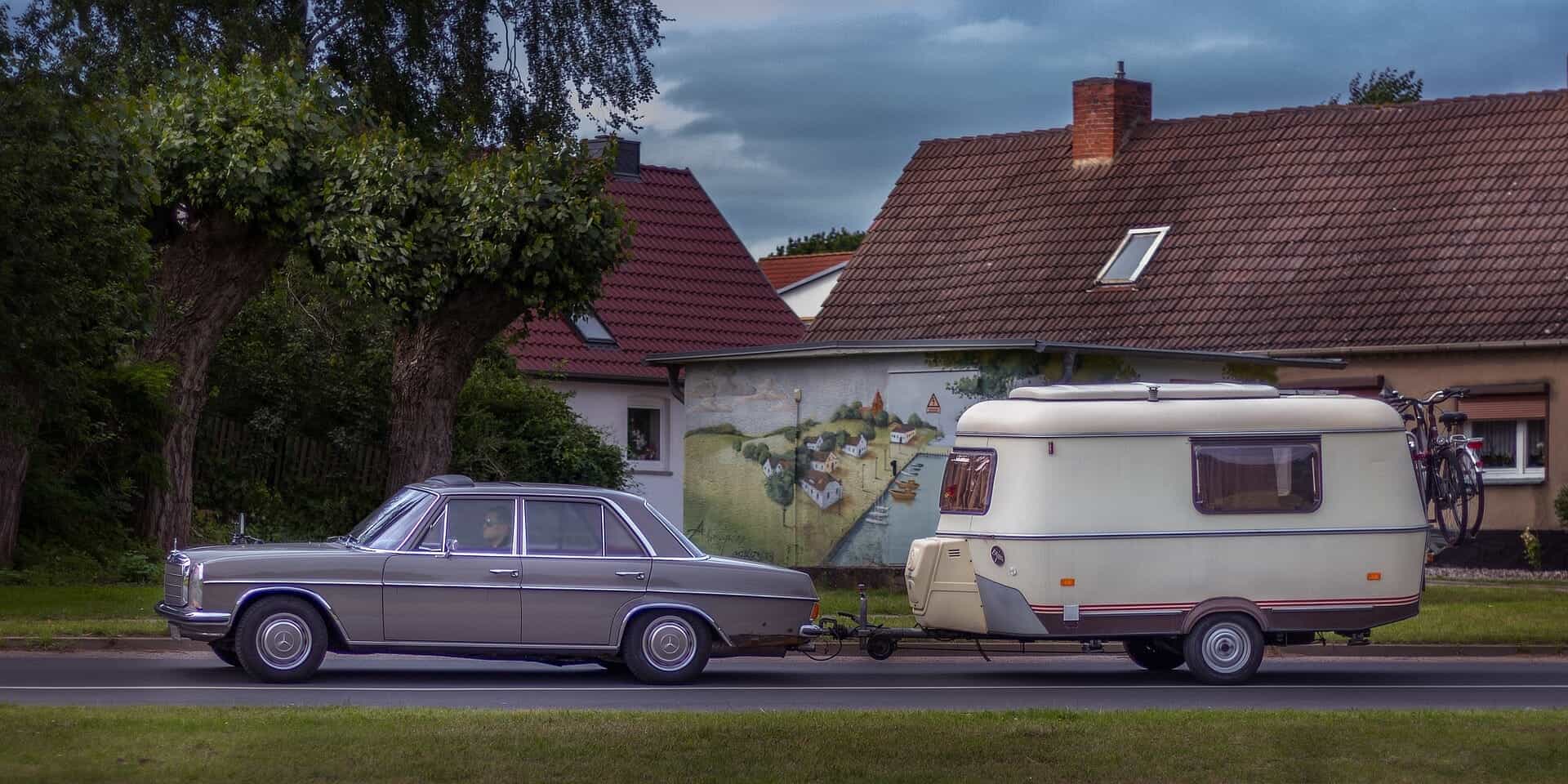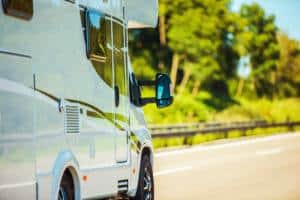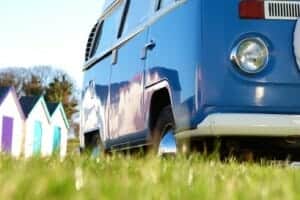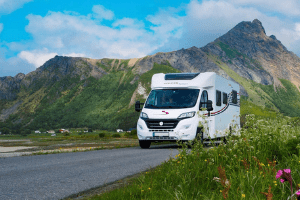Hitching a caravan to the back of your car and hitting the open road is one of the great British pastimes, offering a convenient and inexpensive way to get away from it all. And, unlike camping, you can take along with you some of those creature comforts you’re used to at home.
The trouble is, it might not be quite as simple as you might think, and there are some rules and restrictions you’ll need to be aware of. Here, we’ll tell you all you need to know and provide some useful tips to make sure both you and your caravan are safe, on and off the road.
What are the rules for towing a caravan?
Before you can tow a caravan, you need to make sure you’re legally able to and also have a good grasp of the UK towing laws. Here are the answers to some of the most common questions about towing a caravan.
Can I tow a caravan on my licence?
This depends upon the type of licence you hold, when you passed your driving test, and the maximum authorised mass (MAM) of the caravan, which is its weight plus the maximum load it can carry. The rules are as follows:
- If you passed your test after January 19, 2013, you can tow a caravan when the combined weight of the towing vehicle and caravan is more than 3.5 tonnes. If the weight exceeds this level, you’ll have to pass a further test in category B+E.
- If you passed your test after January 1, 1997, you can tow a caravan so long as its MAM is no more than 3.5 tonnes. If your caravan exceeds this 3.5 tonne limit, you’ll have to get B+E entitlement on your licence.
- If you passed your test before January 1, 1997 you’ll have a category C1 licence, which means you can tow a caravan so long as its combined MAM (including your car) is no more than 7.5 tonnes.
- If your caravan exceeds the 7.5 tonne limit, you’ll need a category C (HGV) licence. If your caravan falls into this category, then it’s vital you get the category C licence as not doing so will mean your insurance is invalidated.
Is there an age limit for towing a caravan?
There is no lower age limit for towing a caravan, it all depends upon your licence having the relevant entitlements. If you passed your test after January 19, 2013, and the combined weight of the caravan is more than 3.5 tonnes, you’ll have to pass a further test in category B+E.
The cost of this test can vary depending upon when you take it, and if you’ve never towed a caravan before, you’ll also need to factor in the cost of lessons – plan for between 18 and 22 hours of lessons, which could set you back anywhere between £600 and £750.
To find out how to add higher categories to your licence, go to GOV.UK
Once you reach 70 years old, your driving licence expires, meaning you need to renew it every three years if you want to continue driving. If you passed your test after January 1, 1997 and haven’t already added the B+E entitlement to your licence, you’ll have to do this if you want to tow a caravan that weighs over 3.5 tonnes. If you already have this entitlement, it will be retained when your licence is renewed.
You can use this tool at GOV.UK to find out if you’re old enough or have the right kind of licence to tow a trailer from different kinds of vehicles.
How can I find out the towing capacity of my car?
Checking your car’s handbook is the quickest way to find out its maximum towing weight, which is the weight of your fully loaded car plus the combined weight of your fully loaded caravan. If it’s not clear, you’ll need to know the kerb weight of your car and the maximum mass of the caravan (called ‘maximum technically permissible laden mass’, or MTPLM).
You should be able to find the kerb weight of your car in the owner’s manual, on a plate on the door sill, or on the V5 registration document, where you’ll need to look for the figure marked ‘G: Mass In Service’. Similarly, the weight of the caravan is usually listed on a plate near the door frame, but you may need to consult the manufacturer to find out.
Once you have these figures to hand, if the mass of the caravan is 85% or less of the car’s kerb weight, you should be able to tow it without any issues. If it’s between 85% and 100% of the car’s kerb weight, you can still tow it, but it will make driving more difficult, and should only be attempted by experienced caravanners.
If the caravan weighs more than your car, you must not tow it under any circumstances.
Are there any width and length restrictions to towing a caravan?
The maximum trailer width for any towing vehicle is 2.55 metres, while the maximum length for a trailer towed by a vehicle weighing up to 3,500kg is 7 metres. This length does not include the A-frame, which is the parts that links the caravan to the tow hitch.
If you need to measure your vehicle, there are some parts that you don’t need to include as part of your measurements.
When measuring the length, you don’t need to include the:
- Driving mirrors
- Rearward projecting buffers (made of rubber or other resilient material).
When measuring the width, you don’t need to include the:
- Driving mirrors
- Lamps
- Reflectors
- Distortion in tyres due to loading.
What speed can you tow a caravan?
Speed limits for towing a caravan vary depending upon the type of road you’re on. When towing a caravan, always stick to the following speed limits:
| Type of road and speed limit | Speed limit when towing a caravan |
| Motorway 70mph | 60mph |
| Dual carriageway 70mph | 60mph |
| Dual carriageway 60mph | 50mph |
| Single carriageway 60mph | 50mph |
| Roads with speed limits of 20mph – 50mph | Same as posted speed limit |
Can you tow a caravan in the fast lane?
When towing a caravan on a three-lane motorway, you’re not allowed to drive in the outside lane.
On two-lane stretches of motorway, you can use the outside lane to overtake, but must return to the inside lane once you’ve finished overtaking. This rule also applies to any vehicle, regardless of whether or not they’re towing a caravan or trailer – outside motorway lanes are for overtaking only and are not meant to be driven in for long stretches.
To summarise, when towing a caravan on a:
- Motorway or dual carriageway with a speed limit of 70mph, you should never drive any faster than 60mph and never use the third motorway lane.
- Single carriageway with a speed limit of 60mph, you should not go above 50mph.
- Road with speed limits of 50mph or lower, the maximum speed is the same as the posted speed limit. If there are no signs to show the speed limit, always assume that it is 30mph.
Can I carry passengers while towing a caravan?
You’re free to carry passengers in your car while towing a caravan, but towing laws prohibit you from carrying passengers in the caravan itself. There are actually no laws to stop you from carrying animals in a towed caravan, but we would never recommend that you do this.
What are the towing laws regarding caravan tyres and trailer lighting?
As with your car’s tyres, you should carry out regular checks to ensure your caravan tyres are in good condition, fully inflated and capable of carrying the maximum, fully-laden weight of the caravan while travelling at the maximum permitted speed.
What are the towing laws regarding caravan and trailer lighting?
If you’re going to be towing your caravan in the dark, your caravan must have the following fitted:
- Brake lights
- Direction indicators
- Two red side lights at the rear
- At least one rear fog light (if the trailer is more than 1.3m wide)
- Two red triangular reflectors
- Number plate light
It’s advisable to have these fitted to your caravan at all times.
What do you need to tow a caravan?
Although you might think you need nothing more than a tow bar and hitch to tow your caravan, there are a number of additional items you need to ensure you’re legally towing it. So, before you set off, you will need:
- A tow-bar – Any tow-bar you have fitted must be type-approved so it meets all the required EU safety regulations, is right for your car and can take the necessary weight of your caravan. A type-approved tow-bar will have a label that features an approval number, and details of the vehicles it is approved for use on. This doesn’t apply to cars first used before 1 August 1998.
- Towing mirrors – You’ll need to fit mirrors that enable you to see past the width of the caravan to give an adequate view of the road behind. If you don’t have these fitted, you can be fined up to £1000 and given 3 penalty points on your licence.
- Caravan brakes – Any trailers, including caravans, that weigh more than 750kg must have its own working brake system.
- Number plates – The back of your caravan needs to clearly show the same registration as the vehicle towing it.
If you’re found not using any of the above when towing a caravan, or the items you are using don’t meet the required safety standards, you could be fined up to £2,500, be on the receiving end of penalty points on your licence, or even banned from driving.
How to tow your caravan in bad weather
Although caravanning is something most of us do in the summer months, there may be times when you want to get away in the winter, or when you get out and about in the spring or autumn and the weather takes a turn for the worst.
Wind is the biggest enemy of the carvanner, as sudden gusts can easily cause all sorts of problems. That’s why you should always try to avoid travelling in bad weather, at least until the wind has died down.
If you really must travel in windy weather, try to avoid motorways and exposed, open roads where strong gusts can make driving difficult or even tip your caravan. Driving slowly will also help you stay in control, as will fitting an anti-snaking device, which detects lateral or snaking movements and automatically applies all caravan brakes simultaneously when oscillations become severe enough to matter.
It also helps to distribute the weight of any luggage and equipment evenly across the caravan to create better stability. For more information, check How to pack your caravan, below.
If you find yourself driving in snow and ice, make sure you slow down and drive in the highest gear possible to avoid wheel spin, and try to avoid harsh braking and steering. If you find yourself skidding, avoid hitting the brakes, take your foot off the accelerator, and steer into the skid to try and straighten up.
When driving in fog, make sure you use dipped headlights and activate your rear fog lamps. Again, drive slowly and avoid using your gears to slow down; use your brakes instead so that people behind are aware you’re slowing down. If the traffic looks like it could be coming to a standstill, it might be worth putting your hazard lights on.
How to pack your caravan
To ensure your that weight is distributed evenly across your caravan, try to follow these guidelines:
- Heavy items – Pack the heaviest items in the middle of the caravan, preferably over the axel.
- Medium-weight items – Evenly pack medium weight items on the floor to the back and front of the caravan, and over the heavy items in the middle.
- Light items – Pack lighter items up high across the length of the caravan.
What to pack in the car when caravanning
When towing a caravan, you should try to pack the following items in the car, or fit them to the car, if necessary:
- Blankets
- European car kit
- First aid kit
- Fuel can
- Hot water bottles
- Jack
- Jump leads
- Pillows/cases
- Reflective Jackets/high visibility vests
- Sat nav
- Spare fuses/bulbs
- Spare keys
- Spare wheel/tyre
- Stabiliser
- Thermal jackets
- Tools
- Torch/batteries
- Tow rope
- Towball cover
- Towing mirrors
- Tyre inflators
- Tyre pressure gauge
- Warning triangle
What to pack in the caravan when caravanning
When towing a caravan, you should try to pack the following items in the caravan itself, or fit them to it, if necessary:
- Awning/windbreak
- Battery 12v
- Battery box
- Battery charger
- Chemical toilet
- Corner steady pads
- Corner steady tool
- Fire extinguisher
- Folding table and chairs
- Fresh water container(s)
- Fresh water hoses
- Gas cylinder spanner
- Gas cylinders
- Gas hose – spare
- Gas regulators
- Groundsheet
- Hitch lock
- Hooks
- Insect screens
- Lamp(s)
- Levelling blocks
- Mains adaptor lead
- Mains lead 230v
- Mains polarity tester
- Mallet
- Nose weight gauge
- Pegs
- Sheets/liners
- Sleeping bags/duvets
- Spare fuses/bulbs
- Spare keys
- Spirit level
- Step
- Submersible pump
- Toilet fluids
- Waste water container(s)
- Waste water hoses
- Wheel chocks
- Wheel lock
- Wheelclamp
Top tips for towing a caravan
If you want to make the most of your caravanning trip and make that you, your passengers and your caravan are all kept safe, follow our top ten tips below:
- When towing a caravan, give yourself more time and space on the road, and take extra care on roundabouts and when taking corners.
- Check both your car and caravan tyres before setting out on any trip, even at the start and end of your holiday. Check tyre tread and sidewalls for signs of wear, and make sure they are inflated to the correct pressure – not only does this make handling better and safer, it also improves fuel efficiency.
- Always stick to the prescribed speed limit of 50mph on single carriageways or 60mph on dual carriageways. And never use the third lane on the motorway.
- When towing a caravan, your car will take longer to stop, accelerate and turn, so always allow for the extra length and width when taking corners and manoeuvering.
- Never carry passengers in the caravan when you’re towing it, and always pack luggage carefully to evenly distribute the weight and make steering easier. Check the load is secure every time you stop off.
- When reversing into a space, you need to start the trailer turning first. To do this, first, steer the wheel in the opposite way to normal before turning the normal way so the car follows the trailer in. If you don’t get it right the first time, keep your cool and try again. If possible, it’s always worth having someone stand outside to help you reverse and let you know if it’s going wrong.
- Always practice driving and manoeuvering in a quiet place before taking the caravan out on the open road.
- Before you set off on any journey, make sure your rear light panel is working and visible, and check it again each time you stop off.
- Try to avoid towing a caravan in bad weather, and always avoid high winds. You also need to be cautious around fast-moving, overtaking lorries as the slipstream can cause snaking.
- To help prevent snaking and pitching, make the car and caravan weight and size are well matched and consider using stabilisers.
Discover more tips in towing your caravan.
How to make sure your caravan is fully insured
It’s vital to make sure your caravan is fully insured and you’re covered whether it’s being kept on the drive or driving around Europe.
To find the right caravan policy to suit your needs, give our insurance experts a call on 0208 9840 666 – our unrivaled choice of policies is what helps 93% of our customers rate our service as ‘Excellent’ on Trustpilot with a customer satisfaction score of 9.7 out of 10.*
*June 2019 “







